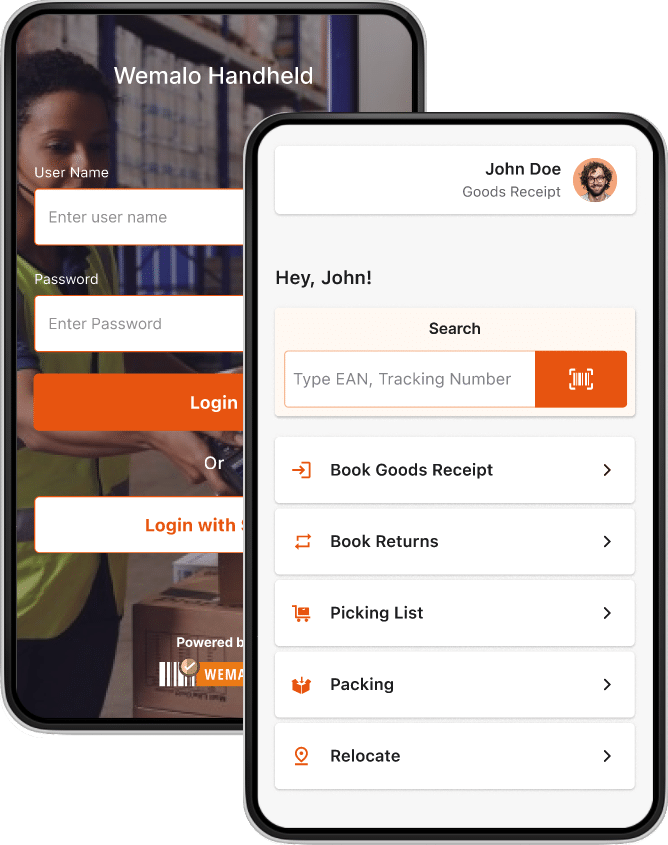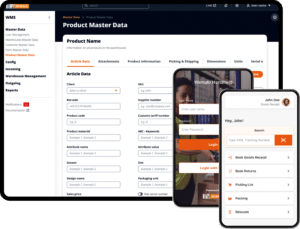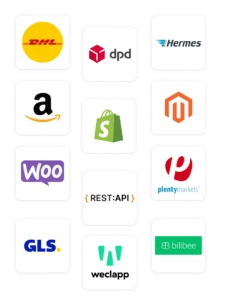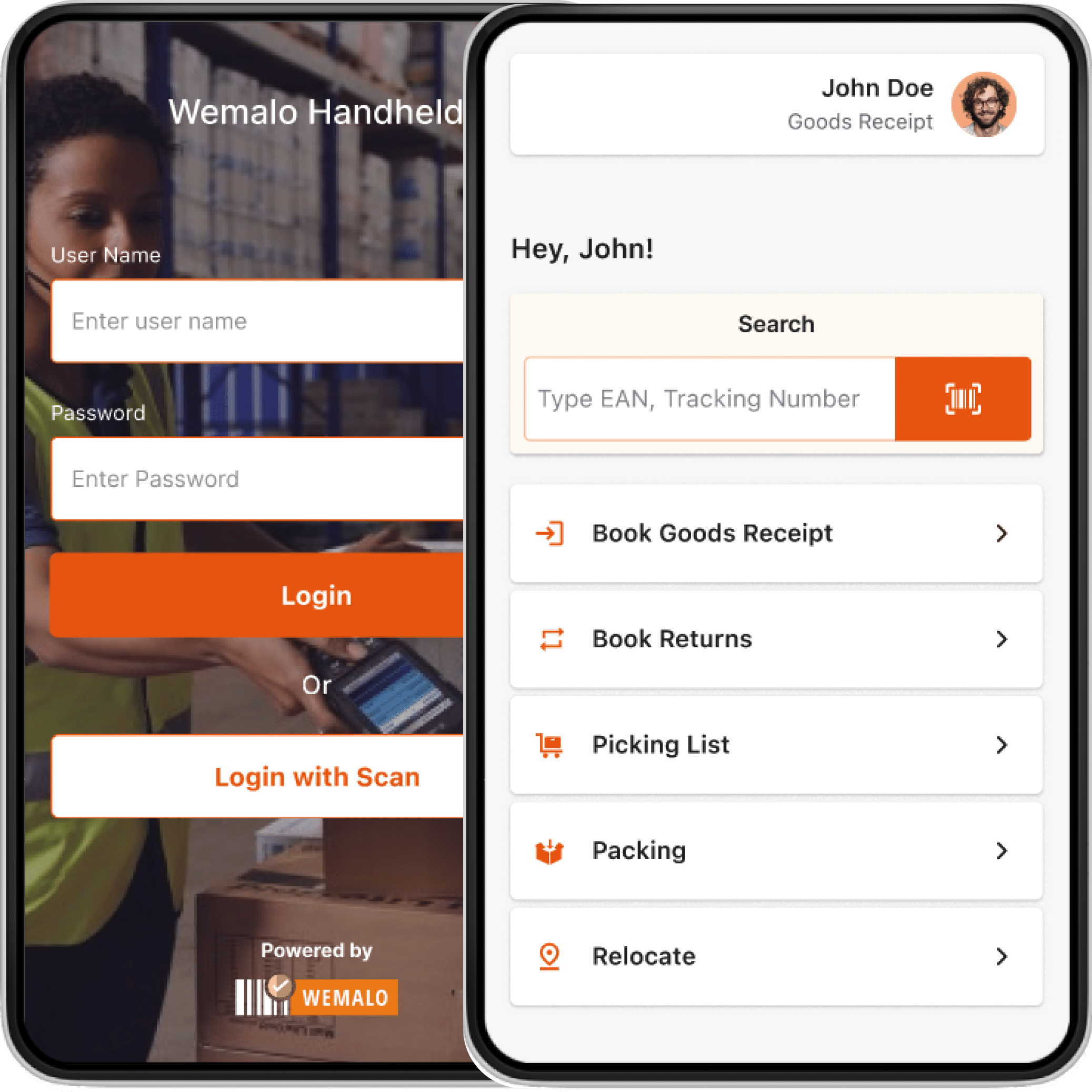Software for logistics. Efficient solutions and functions increase your productivity.
Modern logistics software offers companies innovative solutions for optimising processes, increasing efficiency and improving overall performance in the supply chain.
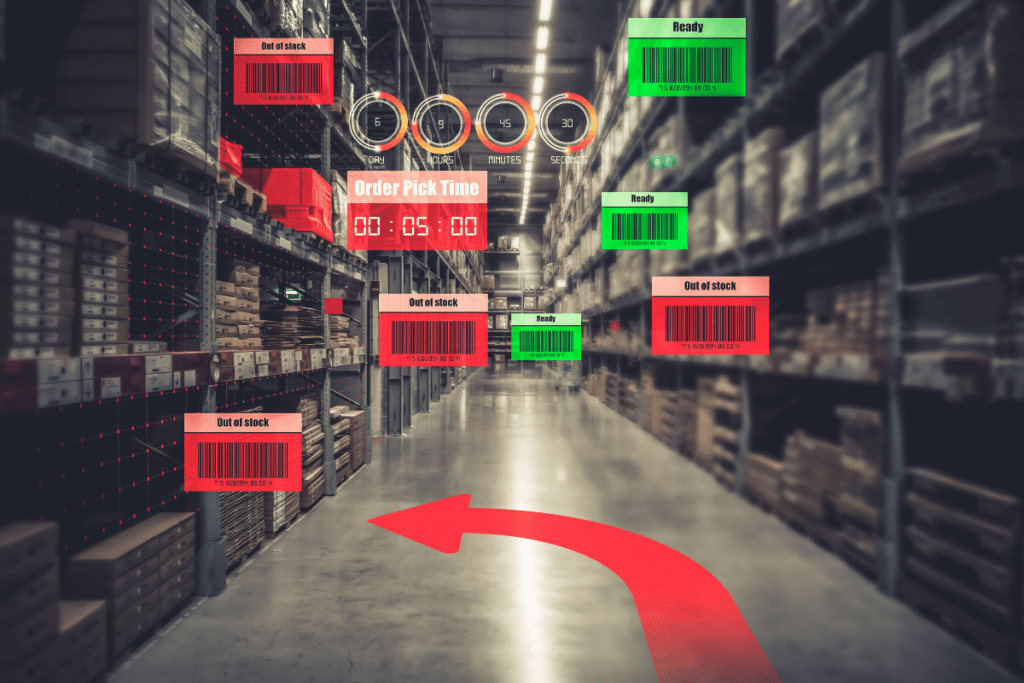
The topics to help you get started quickly on the site:
The importance of logistics software
In today’s modern business world, efficient logistics plays a critical role in the success of companies in various industries. One of the most important developments in this area is the use of software for logistics companies to optimise processes, reduce costs and improve overall performance in the supply chain.
Logistics software has evolved significantly over time to meet the changing needs of the industry. Previously, logistics processes were carried out manually and in isolation, leading to inefficiencies and delays. With the advent of modern software solutions for logistics companies, all aspects of the supply chain can now be seamlessly integrated and optimised.
10 advantages for companies
- Increased efficiency: Logistics software optimises processes such as inventory management, transport planning and supply chain management, resulting in increased efficiency.
- Cost reduction: By automating logistics processes, costs can be reduced and waste minimised.
- Real-time tracking: Logistics software enables real-time tracking of deliveries, which leads to better transparency and traceability.
- Warehouse optimisation: The software supports the optimal use of storage space, inventory management and reordering processes.
- Increased customer satisfaction: Improved delivery times and reliable deliveries allow customers to be better served, which increases customer satisfaction.
- Data-driven decisions: The software provides important data and analyses that support companies in strategic planning and decision-making.
- Improved compliance: Logistics software helps companies to fulfil regulatory requirements and ensure that all processes comply with legal regulations.
- Reducing errors: By automating processes, human errors can be minimised and the accuracy of logistics processes improved.
- Scalability: The software can be customised to the individual requirements and growth of a company to enable successful scaling.
- Competitive advantage: Companies that use logistics software can gain a competitive advantage by working more efficiently and offering a better service.
The functions of customised software for logistics
Customised logistics software enables companies to optimally adapt their processes and thus increase their efficiency. Customised adaptations in transport and warehouse management enable precise scheduling of goods and vehicles. Special functions such as automatic routing or real-time tracking of consignments offer a clear competitive advantage in the automotive sector.
By integrating various systems into the logistics software, companies can reduce costs and increase customer satisfaction at the same time. The customised software not only supports management, but also optimises the entire supply chain. With the right system, companies can effectively manage their transport processes and thus sustainably improve their productivity.
Increased efficiency through customisation
In today’s complex logistics landscape, it is crucial to continuously optimise efficiency. Customised software solutions for logistics offer companies the opportunity to perfect their processes through individual adaptations. Targeted adaptations to specific requirements can be used to make transport management, scheduling and warehousing more efficient.
This customisation makes it possible to seamlessly integrate workflows and eliminate bottlenecks. The logistics software offers functionalities that ensure a customised solution for transport and forwarding management. This enables companies to reduce costs, better fulfil customer needs and increase their competitiveness. With software adaptations tailored to the company’s needs, effective optimisation of logistics processes is achieved.
This not only leads to improved operational performance, but also to a long-term increase in productivity throughout the organisation.
Optimisation of warehousing with special software for logistics
The noticeable increase in efficiency in warehousing is achieved through the targeted use of customised logistics software. The special software not only enables the precise scheduling of goods, but also optimises transport management processes.
Thanks to the customised functions of this software, companies can always keep an eye on their stock levels and control logistics processes smoothly. This not only leads to cost savings, but also to greater customer satisfaction thanks to punctual deliveries.
The adaptability to different industry requirements, such as in the automotive sector, makes these software solutions indispensable for any company that wants to optimise its logistics. With customised software for warehousing, you remain flexible and ensure smooth operations in your company.
Automation of processes thanks to modern logistics software
Innovative logistics software can be used to automate processes and make them more efficient. The functions specially tailored to the requirements of the industry facilitate scheduling and optimise transport management. These software solutions offer companies in the automotive sector the opportunity to reduce costs and improve customer service.
The automation of processes through logistics software makes it possible to save time and minimise errors. This not only increases productivity, but also optimises warehousing and the supply chain. With customised logistics software, companies can make their processes more flexible and respond better to individual requirements. The integration of different systems creates a seamless working environment in which all processes interlock smoothly.
Cost savings through the use of customised programmes
Companies can achieve considerable cost savings through the targeted use of customised logistics software. These special programmes offer functions that are tailored to the company’s individual requirements and processes.
By optimising transport and warehouse processes, efficiency increases can be achieved that are directly reflected in financial savings. Implementing logistics software can help to reduce operating costs and improve service quality for customers at the same time.
By relying on customised IT solutions, companies can make their logistics processes more effective and thus remain competitive in the long term. An intelligent combination of transport management and freight forwarding software not only saves resources, but also achieves sustainable success in the area of cost optimisation.
Improving the supply chain with the help of software solutions
The implementation of specialised logistics software offers your company the opportunity to significantly improve efficiency and transparency in the supply chain.
You can optimise processes and ensure seamless integration of different systems through targeted adjustments and individual functions. The software enables precise planning and scheduling of transports to avoid bottlenecks and reduce costs.
With customised logistics software, you have the opportunity to optimise your warehousing and meet customer requirements. The automation of processes in transport management creates space for strategic decisions and sustainably increases the productivity of your company. Use this modern technology to organise your supply chain effectively and gain a competitive advantage in the industry.
Integration of various systems to increase productivity
Seamless integration of different systems is crucial for increasing productivity in logistics. Customised software solutions offer the possibility of linking different processes and data with each other, resulting in a more efficient way of working.
Through the smooth collaboration of transport management systems, warehousing software and freight forwarding programs, companies can optimise their processes and save time and costs. The flexibility of these integrated systems makes it possible to respond to individual requirements and thus improve the entire logistics workflow.
Professional implementation ensures that the various tools are successfully combined and that all departments can work together seamlessly. With a well thought-out integration of logistics software, companies create a solid foundation for an effective and efficient supply chain that ensures long-term success.
Flexibility and adaptability to different company requirements
The customised software for logistics offers impressive flexibility and adaptability to the diverse requirements of your company. Individualised functions allow you to optimise your processes and ensure efficient transport and warehousing.
Thanks to the flexibility and customisability of these software solutions, they can be successfully implemented into your existing infrastructure to ensure long-term efficiency and success.
Successful implementation of software solutions in the existing infrastructure
Successful implementation of customised logistics software into your existing infrastructure is crucial for the smooth running of your logistics processes. Careful planning and professional implementation will ensure that the software integrates seamlessly with your existing systems.
Specific requirements and needs of your company are taken into account to ensure maximum efficiency and productivity. An experienced IT partner will support you in developing customised solutions and implementing them successfully in your company.
The close collaboration between you and WEMALO, for example, ensures a smooth introduction of the software as well as training for your employees to ensure that they can utilise the full potential of the new technology. With a successful implementation, you are ideally positioned to optimise your logistics processes and strengthen your competitiveness in the long term.
Conclusion: More efficiency and success with customised software
The successful implementation of customised software for logistics in your company infrastructure offers a wide range of benefits. Processes can be optimised and efficiency increased through individual adaptations.
Special functions for automating transport management and scheduling contribute to cost savings. The integration of different systems enables improved warehousing and a more effective supply chain. The flexibility of these software solutions makes it possible to customise them precisely to your company’s requirements.
This not only increases productivity, but also ensures long-term success. With customised logistics software such as WEMALO, you can make your logistics processes more efficient and thus gain a decisive competitive advantage.
Invest in the future of your logistics with customised software solutions to take your company to the next level.
FAQs
In order to select the best software for their needs, logistics companies should first carry out a thorough analysis of their requirements. This includes identifying the specific functions and features that are needed to make operations efficient.
Another important step is to research different software providers and compare their products. You should not only look at the price, but also at factors such as user-friendliness, customer support and integration with existing systems.
It can also be helpful to obtain references from other companies or request trial versions of the software. In this way, logistics companies can ensure that they make the right decision and benefit from an optimally customised solution in the long term.
Finally, it is important to ensure that the chosen software system is flexible enough to cope with future developments in the logistics sector. A regular review of the system and training programmes for employees are also crucial aspects when selecting a suitable software solution for your company.
The integration of AI in logistics software plays a decisive role in the efficiency and optimisation of processes. By using artificial intelligence, complex data can be analysed, patterns recognised and predictions made in order to shorten delivery times or optimally manage stock levels, for example.
By automating certain tasks, time can be saved and human error minimised. Intelligent software can also help to plan routes more effectively, predict traffic congestion and thus reduce transport costs.
Overall, the integration of AI helps companies to optimise their logistics processes and thus operate more competitively on the market. It is therefore essential for modern logistics companies to utilise this technology.
Digitalisation has a significant impact on supply chain optimisation. By using digital technologies such as IoT, artificial intelligence and big data analytics, companies can make their supply chains more efficient and optimise processes. Real-time data enables better planning, monitoring and control of the entire supply chain.
By automating tasks such as warehouse management, inventory control and transport planning, costs can be reduced. Digitalisation also improves transparency in the supply chain, which leads to a faster response to changes.
Overall, digitalisation offers enormous opportunities for companies to make their supply chains more effective and gain competitive advantages. It is therefore important for companies in all sectors to address this issue and take appropriate measures to optimise their supply chain.
Small and medium-sized companies can benefit from logistics software in a variety of ways. By using such software solutions, processes can be optimised, costs reduced and efficiency increased. The automated planning and control of transport routes and stock levels enables companies to improve their logistics processes and recognise bottlenecks at an early stage.
In addition, logistics software also offers better transparency across supply chains. This not only makes it easier to track the flow of goods, but also contributes to a faster response to unforeseen events such as supply bottlenecks or delays. By utilising modern technologies such as artificial intelligence or the Internet of Things, logistics software can also help to carry out predictive maintenance, which ultimately reduces downtime and therefore increases productivity.
Overall, the use of logistics software for small and medium-sized companies is an important step towards more effective company management in the area of supply chain management.
Several trends will shape the future of logistics software in the coming years. One of these trends is the increased integration of artificial intelligence and machine learning into logistics processes. These technologies will enable companies to optimise their processes, reduce costs and shorten delivery times.
Another important trend is the increasing networking within the supply chain through the use of Internet of Things (IoT) technologies. This will make it possible to monitor the flow of goods in real time and recognise bottlenecks at an early stage.
Sustainability will also play an increasingly important role. Logistics companies will increasingly have to look at environmentally friendly solutions in order to reduce their ecological footprint.
Overall, it can be said that the future of logistics software will be characterised by innovative technologies such as artificial intelligence and IoT as well as a strong focus on sustainability in all logistics processes.

